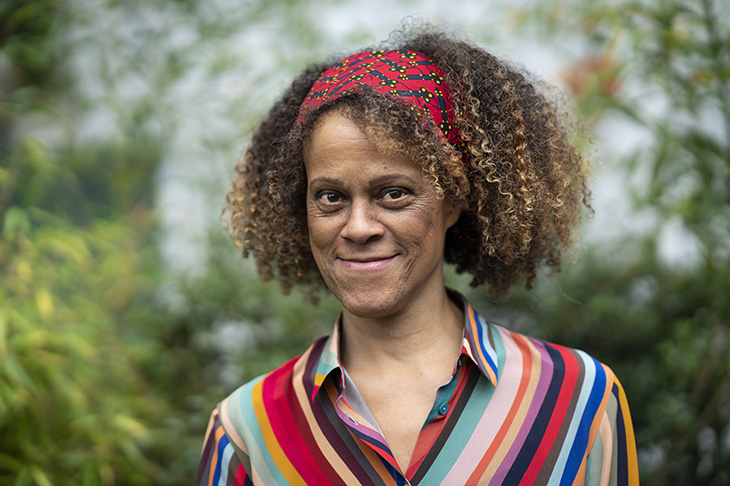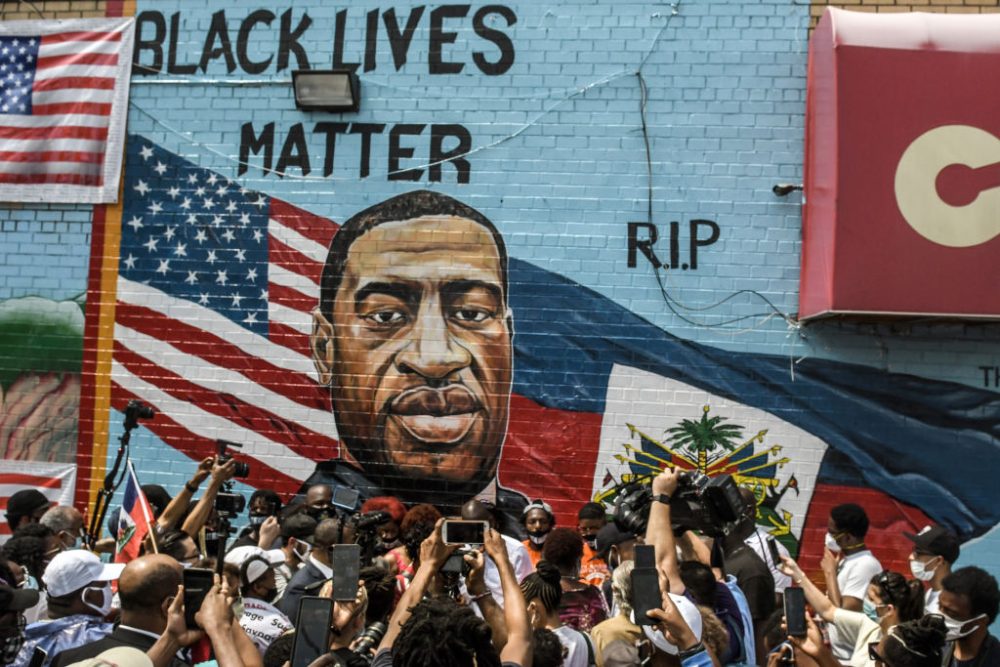It’s a slippery word, ‘other’. Taken in one light, it throws up barriers and insists on divisions. It is fearful and finger-pointing: them, not us. But looked at in another way, it is rangy, open and expansive. It suggests horizons, not walls.
That first meaning has done much heavy lifting in discussions of Bernardine Evaristo’s Booker-winning Girl, Woman, Other. As the first black British woman to be awarded the prize, this was perhaps inevitable. Evaristo cuts an unmistakable dash through the ranks of past winners: they have been, on the whole, more pale and — damningly — a lot more male. The Booker judges hardly steadied the debate with their controversy-courting decision to share the prize between Evaristo’s novel and Margaret Atwood’s The Testaments — against the rules and the wishes of Gaby Wood, the Booker literary director. It was a clumsy move, which encouraged hair-splitting rather than inclusivity.
But this hullabaloo is a distraction, as Evaristo’s vital, joyous novel is grounded in that second, roomier definition. Told through the voices of 12 — mostly black — women, it daisy chains with warmth, wit and genuine depth of feeling across the span of recent black British history. We begin with Amma, an avant-garde theater director whose play The Last Amazon of Dahomey is premiering at the National. She has spent decades in the theatrical wilderness, ‘a renegade lobbing hand grenades at the establishment that excluded her’. Now, though, tastes have changed and her work is in demand. When she unexpectedly finds herself washed up inside the establishment, she experiences dislocation, muddled with a fierce, furtive pride.
From there, Evaristo broadens her canvas. The Last Amazon’s first night becomes the pivot around which her other characters orbit — sometimes directly, more often in a pleasingly elliptical way. Her novel shoulders some weighty themes — racism, immigrant experience, the increasingly fluid borders of gender and sexuality — but it never feels overburdened by them. In fact, her writing is characterized by a dancing lightness throughout. It is often very funny, and is particularly good at mapping the contested frontiers between parents and children, one generation and the next. Today’s radicals are tomorrow’s has-beens, it reminds us. The sharp edge of fashion swiftly blunts. And language lags behind the times: once acceptable terms are now considered offensive, as identity blooms into ever more variegated categories of self-definition — ‘a gender granary non-binding whatsit’.
This lightness, this flux, is embedded in the pith of Evaristo’s prose. Her novel unspools down the page, stanza-like. Unconstrained by capitalization or full stops, the story spills as — line by line — it slips from one voice to another. It is an effective technique, allowing the author to temper the rhythms of her storytelling with taut control. Again, it calls to mind a dance: there is jeopardy and surprise in the way Evaristo propels the reader into empty space, before turning abruptly on the next beat — wrong-footing us into laughter or a catch in the throat.
As with all patchwork stories, some elements are stronger than others. I thought the earlier narratives, which deal with her characters’ first tentative steps into a mostly hostile Britain, were most compelling; they burn with the acrid tang of injustice and thrum with urgency. By contrast, the woke self-righteousness of present-day Yazz, Amma’s daughter, and her multicultural ‘uni squad, the Unfuckwithables’, is a little too authentically trying.
But, like the dust storm of the Booker debate, these gripes fail to cloud the singular achievement of Girl, Woman, Other. Through the lives of these 12 women, Evaristo inhabits otherness and makes it sing. She quotes the Guyanese poet Grace Nichols:
‘We the women
‘whose praises go unsung
‘whose voices go unheard.’
Evaristo answers: no longer.
This article was originally published in The Spectator’s UK magazine. Subscribe to the US edition here.


























